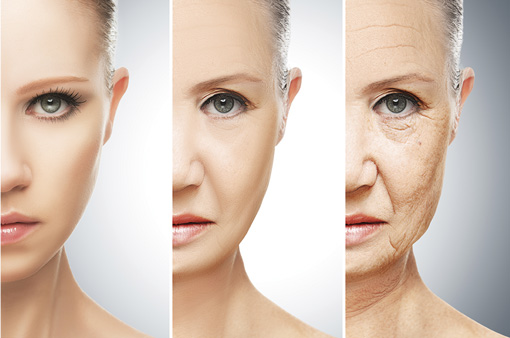1 Thinking about your own ageing
We are all ageing from the moment we are born and most of us will be old one day. Particular events often make people suddenly aware of their own ageing – round number birthdays, for example, the first grey hair, or retirement. How people feel about their own ageing can vary hugely, depending on many different factors such as how generally happy they are with their lives, how much longer they expect to live, the older people they know and the ideas about ageing they have picked up from their wider culture.
In Activity 1 you are going to reflect on your own experiences of ageing so far, whether you think of yourself as currently ‘young’, ‘old’, ‘middle-aged’ or ‘ageless’.
Activity 1 My own ageing
Write a paragraph about your own experiences of ageing so far. You could write about:
- whether you feel the same age as your age in years (your chronological age)
- how you would describe your current age
- how other people affect your sense of your own ageing
- how changes to your body make you aware of your ageing
- what you are looking forward to about growing older
- what you fear about growing older.
Comment
Here is what one person wrote:
I was 41 last birthday and that feels about the right kind of age for me. Some days I feel much older, when I’m tired and I look in the mirror and see nothing but bags and wrinkles and grey hairs. And some days I forget I’m not still about 30. My parents are from Bangladesh and I was brought up to be quite respectful of old people. I think that probably makes me feel a bit more positively towards my own ageing because I have this idea in the back of my mind that being old means being wise and important (even though I can’t really envisage myself ever being like my grandmother who’s nearly 90!). I’m looking forward to having fewer responsibilities after my kids leave home and hopefully not being so busy after I have retired. I worry about getting dementia and having strangers coming in to my home to help me.
Reflecting on your own experiences of ageing is an important part of the academic study of ageing and later life because it affects the ways you approach the topic. Most people do not feel completely neutral about the topic of ageing. It is often difficult for people to imagine that they will ever really be old themselves (Jones, 2012). It is also very common for people who would generally be categorised by other people as ‘old’ to speak as if they were not old – to disassociate themselves from being old. Gerontologists (people who study ageing and later life) have been interested in why this happens, and come up with several different explanations (Bultena and Powers, 1978; Jones, 2006). However they tend to agree that the underlying reason is that we live in an ageist society – one which associates being old with being useless, redundant and of low value. It is therefore not surprising if people do not want to think of themselves as currently old or admit that they will one day be old.
The word ‘ageism’ was coined by Robert Butler:
Ageism can be seen as a process of systematic stereotyping of and discrimination against people because they are old, just as racism and sexism accomplish this for skin colour and gender. Old people are categorized as senile, rigid in thought and manner, old-fashioned in morality and skills … Ageism allows the younger generation to see older people as different from themselves, thus they subtly cease to identify with their elders as human beings.
You will return to the topic of ageism later in this course. But is being ‘old’ always a tale of decline, decrepitude and difficulty? This is the issue you will explore in the next section.

